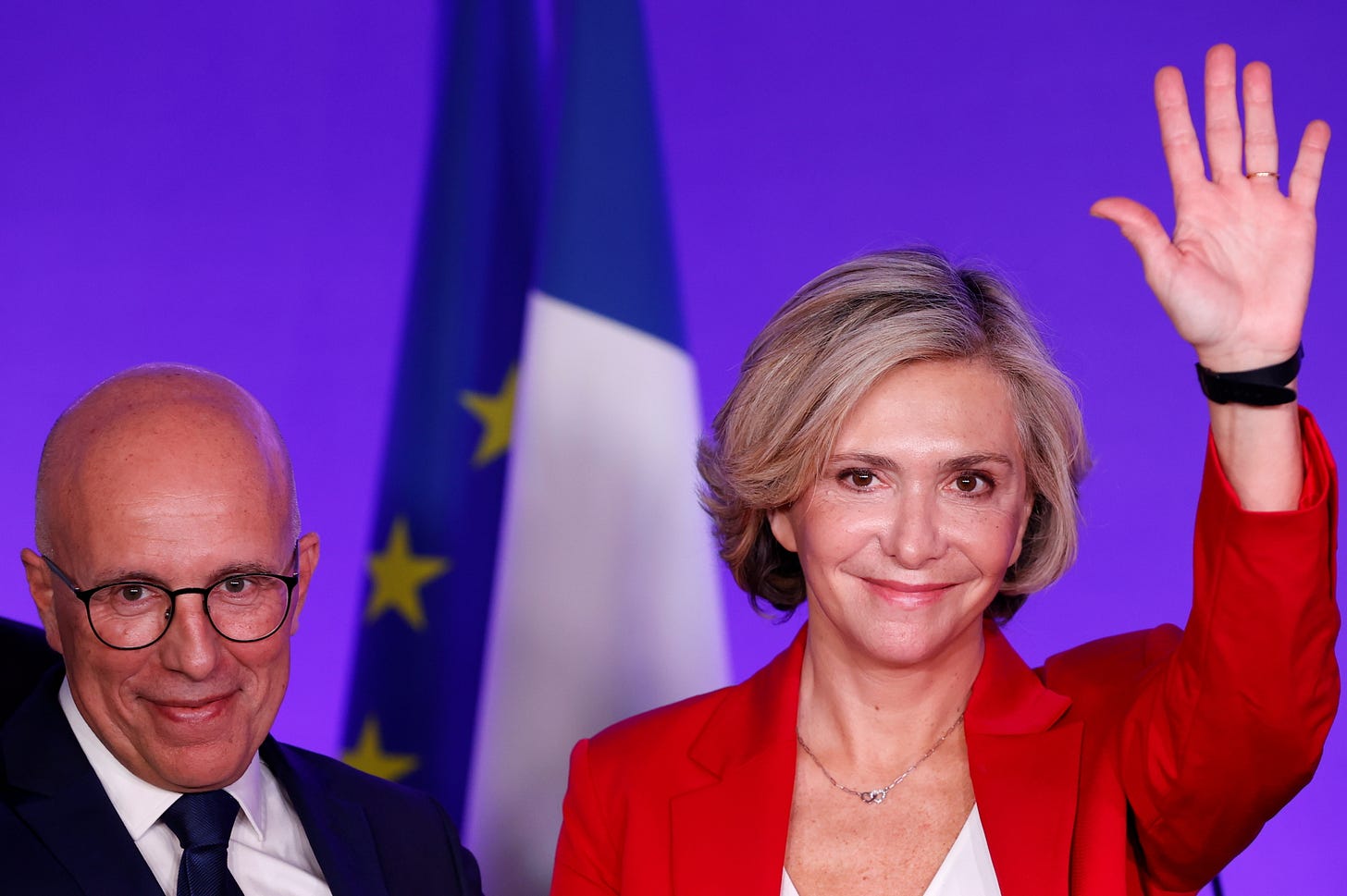On Saturday, Les Républicains, the legacy Gaullist party designated a woman, Valérie Pécresse, as its candidate for the presidential election. Only dues-paying militants and members of the party could vote and Pécresse beat Eric Ciotti by a what looks like a comfortable 20 points (60.95% to 39.05%).
Eric Ciotti, the surprise winner of the first round, gathered almost 4 in 10 militants behind him. That’s about 15% more than his first round score. This tells something very significant about Les Républicains’ base: many have been radicalized.
Ciotti has always been both an apparatchik and somewhat of a radical. His brand of politics is quasi-indistinguishable from Le Pen’s. He campaigned for the nomination with the slogan “pour que la France reste la France” (let France remain France). He recently advocated for a “Guantanamo à la française,” and like Le Pen he wants “national preference” for public services and demands that the century-old droit du sol be rescinded - that is, making citizenship contingent on filiation rather than place of birth. I discussed in a previous post the incremental unwinding of the droit du sol in the context of the island of Mayotte. Ciotti hopes to end birthright citizenship everywhere in France. This is part and parcel of the right’s panic over the so-called “great replacement.” It’s rather ironic coming from someone like Eric Ciotti, who has Italian ancestors and whose family’s roots are in the Comté de Nice, which was only annexed by France in 1860 (traded by Victor Emmanuel II for military help against the Austrians). Eric Ciotti is certainly French but he’s probably not the best person to sermonize about “great replacement” and “français de souche.” Nevermind.
The problem for Pécresse is that the base of the party seems to appreciate these kind of excursions into Le Pen’s and Zemmour’s ideological territory. She is more of a technocrat than an ideologue, but during the nomination campaign she had to pay lip service to nebulous notions such as “no more self-flagellation,” as if any kind of accounting for past misdeeds had ever taken place in France (and especially not among Gaullists, since that’s very complicated).
Her challenge will be to distinguish herself both from Le Pen and from Macron. It’s going to be hard. There is not a lot of political space there. If she veers too much to the right to solidify her base, then she will lose the more centrist and business-friendly voters who are already quite satisfied with Macron. Moving to the center to appeal to these Macron voters, or rather to bring them back into the fold, will be difficult from the pure standpoint of rhetoric: what can she say or formulate that would strike a chord with them? During one of the primaries’ debates she accused Macron of “breaking the cash register” (“péter la caisse”). Indicting the government for fiscal irresponsibility in the face of COVID and intimating that Macron is some sort of tax-and-spend crypto-socialist, these are probably her best, if not her only lines of attack. At the very least it is the one discourse that will bridge the divide between the great replacement wing of the party, the old and entrenched Catholic Fillon people and the pro-business types.
Of course the challenge here is that Macron’s COVID policies were both popular and successful. Not to mention that they were mostly designed and implemented by former heavyweights of her own party: Prime Ministers Edouard Philippe and Jean Castex, and Finance minister Bruno Le Maire. In addition, during the COVID lockdowns, as head of the Paris region, Pécresse demanded and obtained massive support for public transportation from the government (regions administer public transportation, and the Ile-de-France is the biggest one).
Criticizing the government’s largesse while having taken advantage of it is sure to lead to interesting contortions. In the meantime, playing the great replacement card will make Pécresse liable to be outflanked by Le Pen, who will rightly claim that Pécresse is a member of the establishment and that people should prefer the original to the copy.
All that aside, it is great that yet another woman has been nominated by a major political party to run in the presidential election. That makes three with Marine Le Pen and Anne Hidalgo. That’s unmistakable progress. As for winning, that’s probably too difficult this time around.




